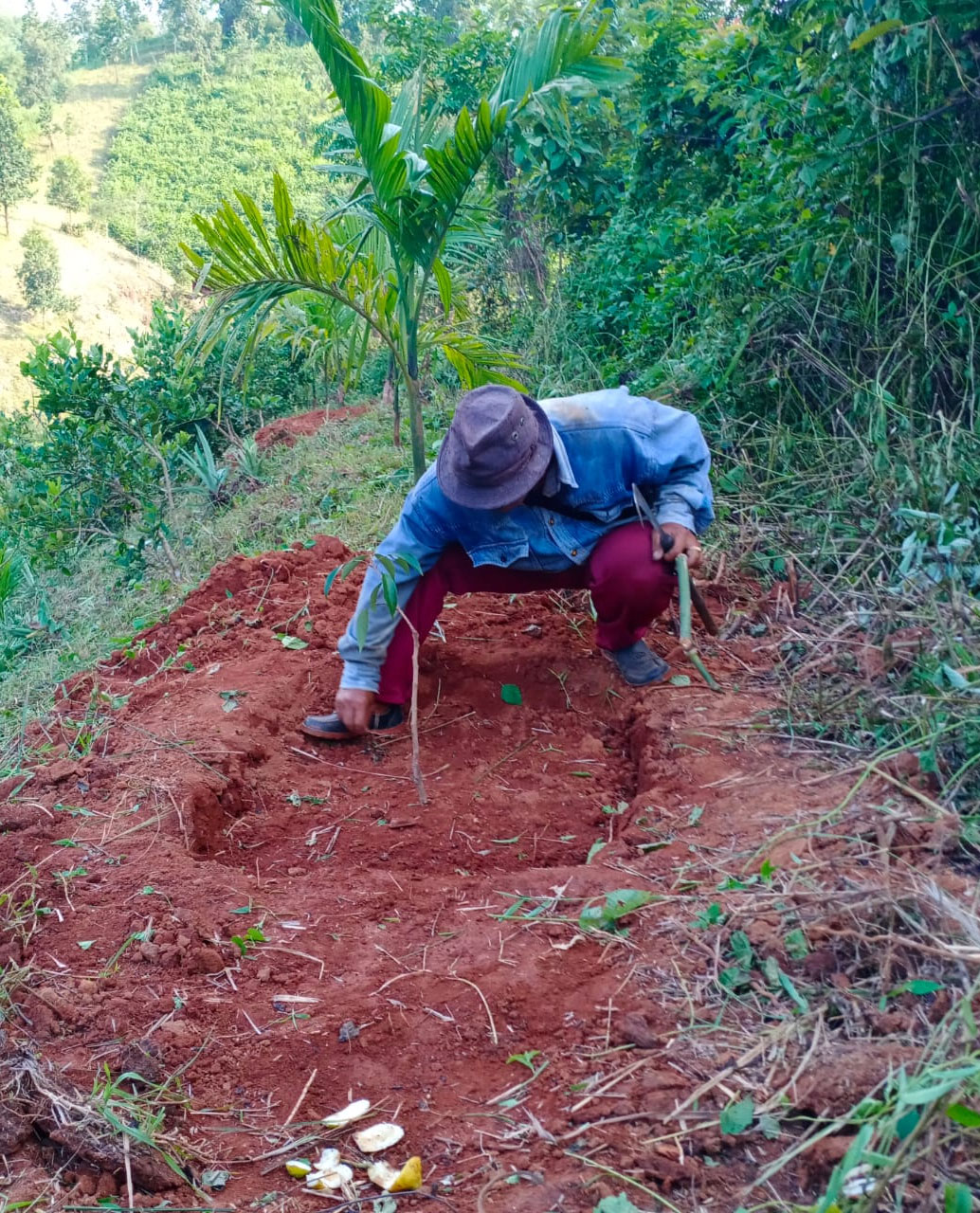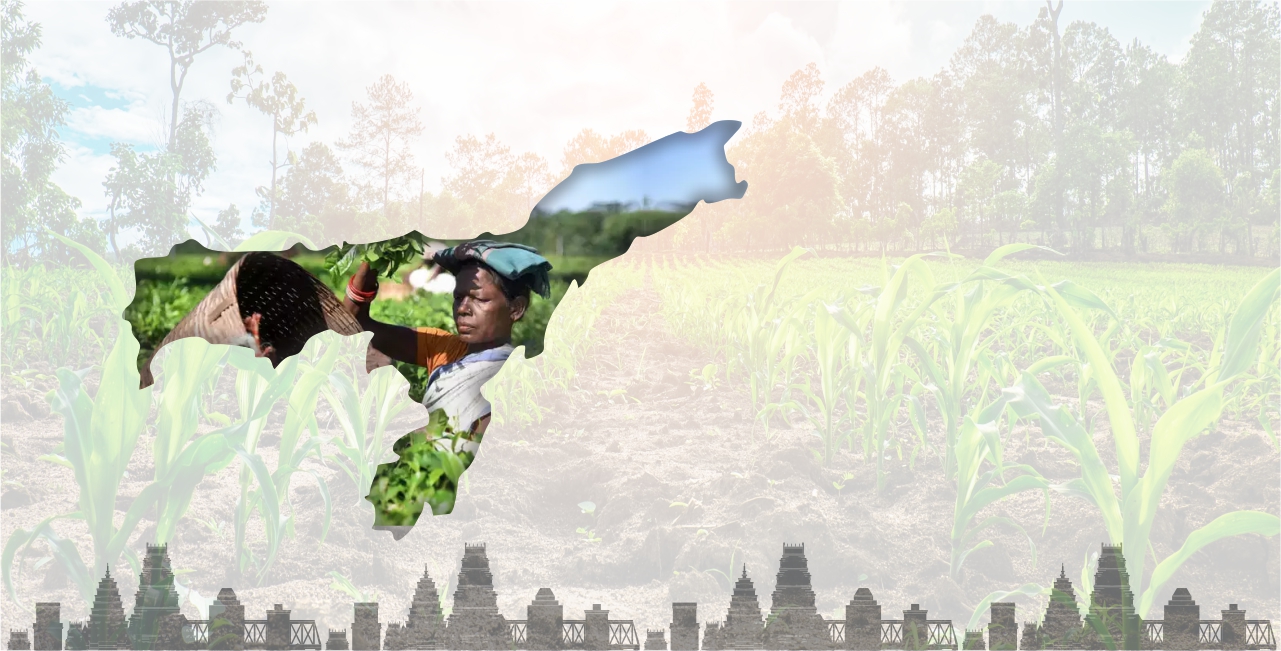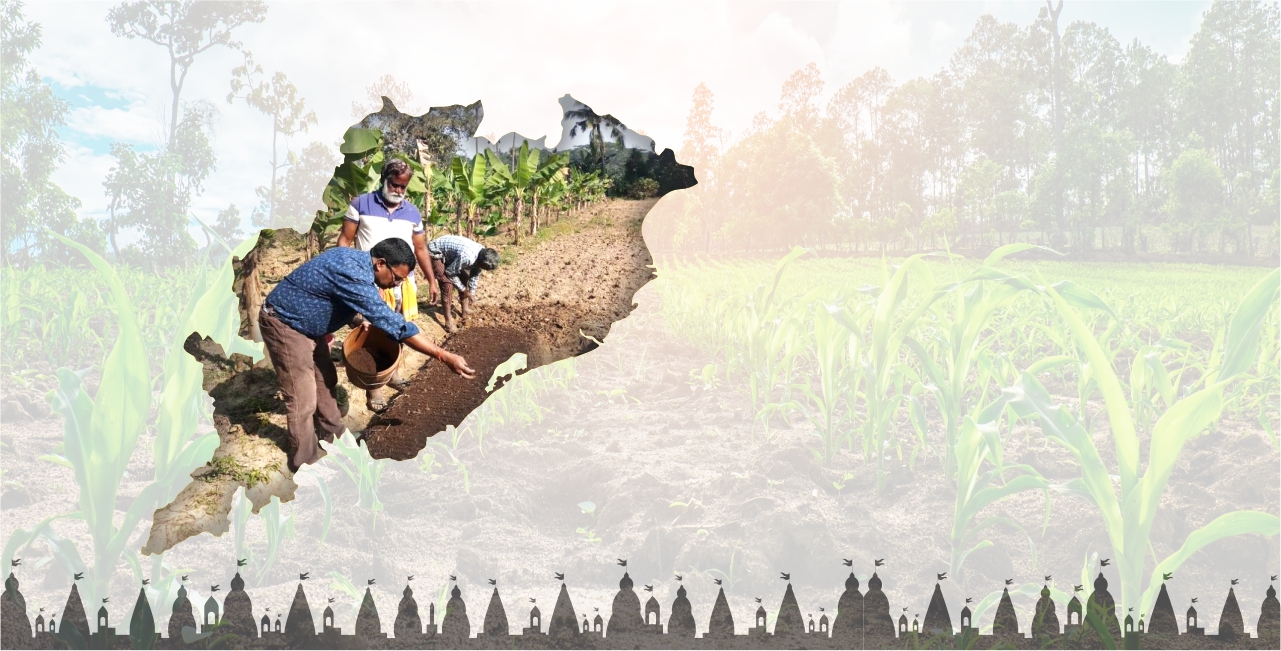Project
Promotion of Community Livelihood through Agro Diversity based on Organic.Project Coverage: Orissa, Bihar, Assam & Meghalaya
60 villages under 4 districts, one each in Orissa, Bihar, Assam and Meghalaya.
Orissa
Odisha's economy has been classified as agricultural, industrial and service based. The economy is of largely agricultural and less industrial and service sector. Due to abundant availability of biomass, agricultural wastes and natural resources; there is vast scope for expanding organic agriculture in Odisha.
Read MoreBihar
Bihar is strong in production of certain high quality crops, vegetables, fruits and spices which are suitable for organic production system. The Primary sector includes agriculture and allied sector like agriculture, animal husbandry. Secondary sector includes electricity, gas, water supply.
Read MoreAssam
Organic Farming in Assam is the traditional way of agriculture which includes techniques to cultivate healthy crops and make better ecosystem. Ordeals and dilemmas dominate the life of Assam farmers. They have immense capacity to endure hardships - natural and man-made.
Read MoreMeghalaya
Farming in Meghalaya is organic by tradition and has been practiced by the farmers and the farming community for ages. Organic farming is to make farming sustainable in the state where people have
small land holdings.
Project Description
The natural environment of the soil/land is potentially rich in biodiversity, both in forest and in agriculture. However, this abundant natural resource base has been eroded over the years due to severe neglect and ignorance as also lack of perceived economic value.A reversal of this situation especially in agriculture, over which local community have control can begin with a planned programme which values livelihood and agro diversity and promotes its restoration. The agricultural
biodiversity needs to be linked to local value addition and to a market which values this produce.
A conscious beginning and upscaling in this regard will lead to opening of opportunities of work and income for the community. It will also help the surrounding nature to be restored and conserved as it links
with the growing opportunity in organic agriculture for which there is a growing consumer demand.
...
A conscious effort for farmer awareness, sensitization and imparting of organic agriculture techniques is needed. Besides creating market advantage, organic agriculture will also help in maintaining soil health and soil moisture, stabilize terraced fields, maintain quality of the produce, reduce risk in agriculture and ultimately lead to sustained productivity.
The high biodiversity of these regions, both in cultivated crops and naturally growing vegetation makes it ideal for organic production. The variations in microclimate over short distance, increases the potential for agro diversity and range of the agricultural produce.
This project proposes to take advantage of the organic potential of agriculture and its link with the growing global consciousness on health and nutrition. The lesser known crops are also being valued as consumers look for more variety. The project will also take advantage of the growing global demand for a variety of certified organic agricultural produce.
Duration:
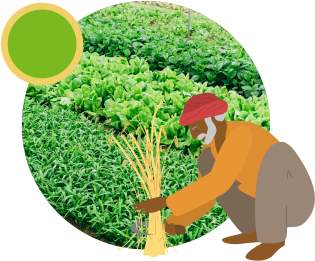


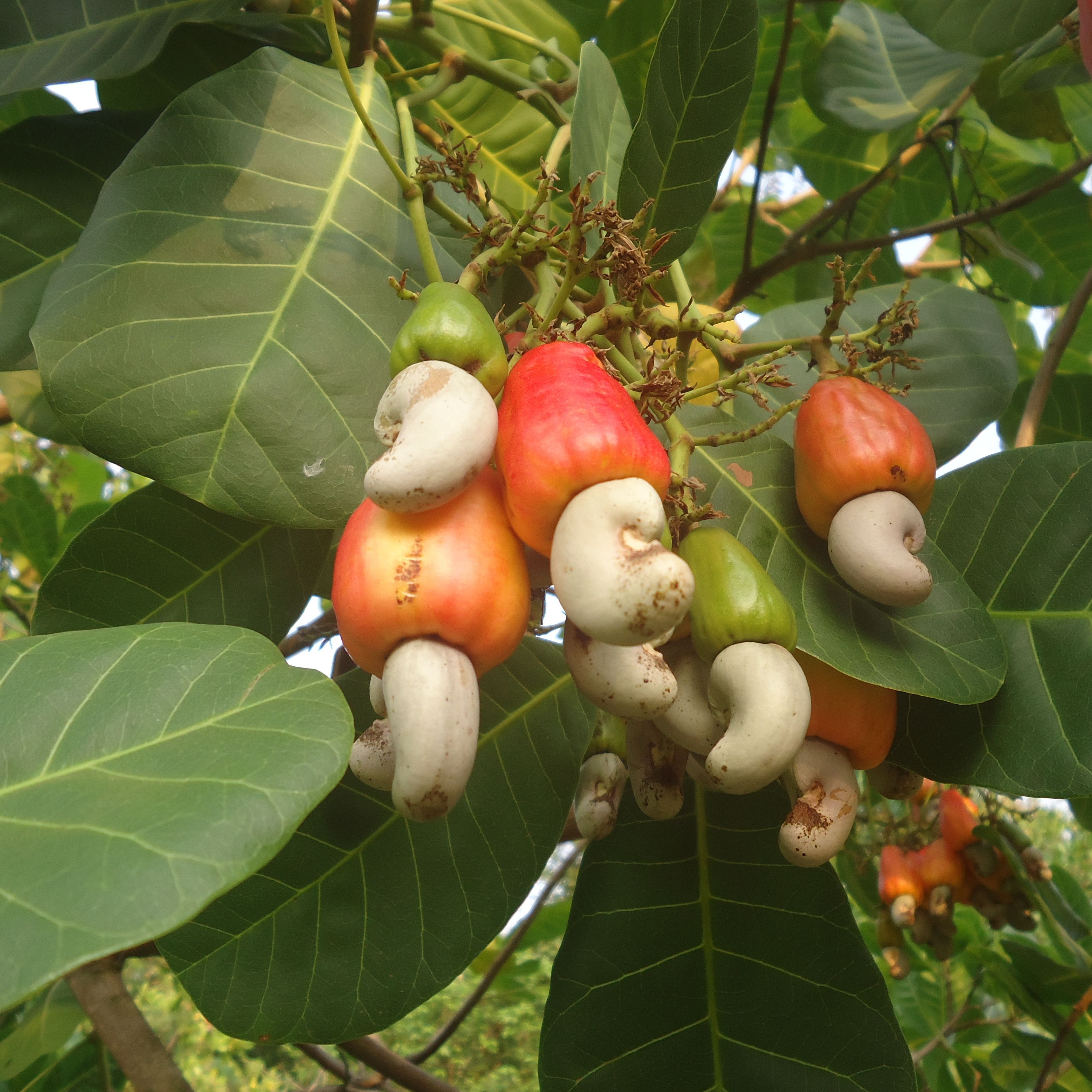
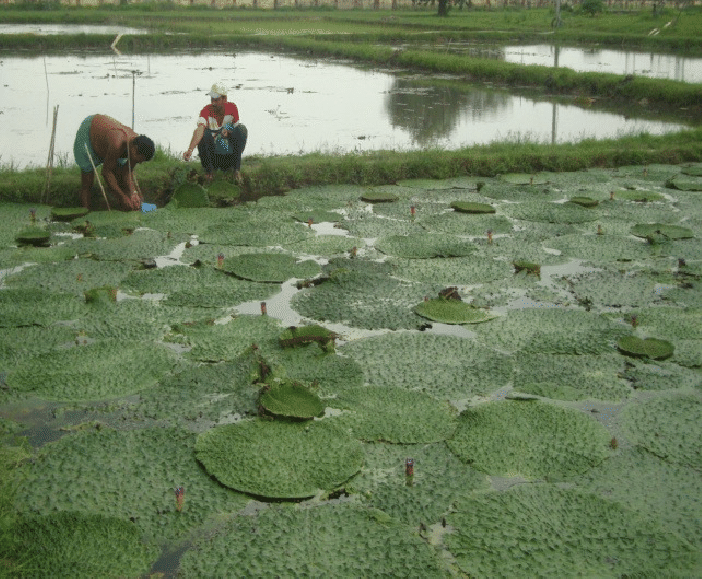
Goal of the project in 3 Years
Rural livelihood creation through promotion and sustainable utilization of agro- diversity of the marginal villagers.-
Convert 10,000-acre land into certified organic agriculture fields
GOAL IMPACTS- improved soil physical properties such as granulation, good tilth, good aeration, easy root penetration and water-holding capacity
- Improved soil's chemical properties such as supply and retention of soil nutrients, reduction in nutrient loss into water bodies and environment and while promoting favourable chemical reactions.
- Increase in awareness of community on organic agriculture, agro diversity and incentive for its conservation.
- Reduced On Farm Input Cost of Marginal Farmers
- 70 % of farmers practicing organic agriculture
-
Empowers 6,000 – 8,000 farmer families as certified Organic Producers
GOAL IMPACTS- Enhances farmer income by up to 25% on existing crops.
- Formation of Farmer Interest Groups and Farmer Producer Organizations fully operated by the Farmers.
- Standardize pre and post-harvest management by organic standards through conducting studies and transferring knowledge and technology to farmers for harvesting, storage and processing of organic farm products.
- 80 % of the community aware of benefits of organic agriculture
-
Orchard Development in 60 villages
GOAL IMPACTS- 80,000 select fruit trees will be planted depending on agro climatic conditions providing alternate income resource to farmers while simultaneously boosting ecology.
-
Develops of 40 Model Organic Villages
GOAL IMPACTS- Creation of modern Organic Farm infrastructure and learning centre in 40 villages to replicate organic farm practices in nearby areas.
- Establishment of organic agriculture facility and demonstration with organic production units like - 1. Vermi Compost Unit, 2- NADEP, 3- Cow Pit Pat, 4- Jaavamrita, 5- Matka Khaad, 6- Neem extract units and liquid compost units etc
-
Common Organic Produce Brand & Market creation with 10 value-added Farm Products
GOAL IMPACTS- Value Chain Developed for the below mentions farm produce
- - Makhanas (Lotus Fruit) from Bihar
- - Cashew Nuts (Kaju) and Rice from Odisha
- - Glutinous (Sticky) Rice, Pineapple and Ginger from Meghalaya
- - Black & Scented Rice, King Chilli (bhoot jolokia), Ginger and Turmeric from Assam
- Efficient supply chain management to ensure higher returns to the farmers.
- Development of collection centre in the cluster, where the produce is aggregated and picked up by the Buyers.
- Establishment of small Packaging and Processing Units as part of the Value addition.
- Capacity building of the farmers towards primary processing, packaging, or marketing, which adds value to raw agriculture products.
- Linkage of farmer produce Market channels or Processing industry as part of the Value addition.
- Market linkages by linking the farmer clusters with exporters for certified organic produce.
-
Innovation and ease in Traditional Agriculture Business through Mobile Apps
GOAL IMPACTS- Tech Savy Farmers with personalized Farmer App which incorporates tech intervention in Agri-sector with features like Traceability, Weather Forecast, Crop Calendar, POPs, INM & IPM Helpline, real-time Market Updates and Access.
- Farmers Direct Linkage with the Market
- 5-10 % decrease in crops damage due to uncertain weather conditions
Objectives of the project
Conservation and augmentation of agro diversity
Objectives of the project
Sustainable development and utilization of organic agriculture
Objectives of the project
Promotion of community based sustainable livelihood opportunities
Key Activities
- Contact, awareness & motivational meetings with community on organic agriculture in 4 States where work has been initiated but needs to be strengthened.
- Forming organic farmer’s groups for organic cultivation of cereals, spices, fruits and medicinal plants.
- Organizing exposures and trainings on organic agriculture farming techniques.
- Setting up and maintaining Internal Control System for organic certification.
- Arranging third party inspection for organic certification of EU and USDA standards.
- Collection of good quality traditional seeds and plant material.
- Multiplication and conversion of traditional seeds and other planting material to organic
- Creation of organic seeds and plant material bank for organic farmers.
- Introducing allied organic agriculture activities for integrating agriculture support.
- Strengthening of present buy back support of SUVIDHA for marginal farmers.
- Up scaling and extension of present centralized processing system and also decentralized extension of semi processing facilities.
- Strengthening market opportunities.
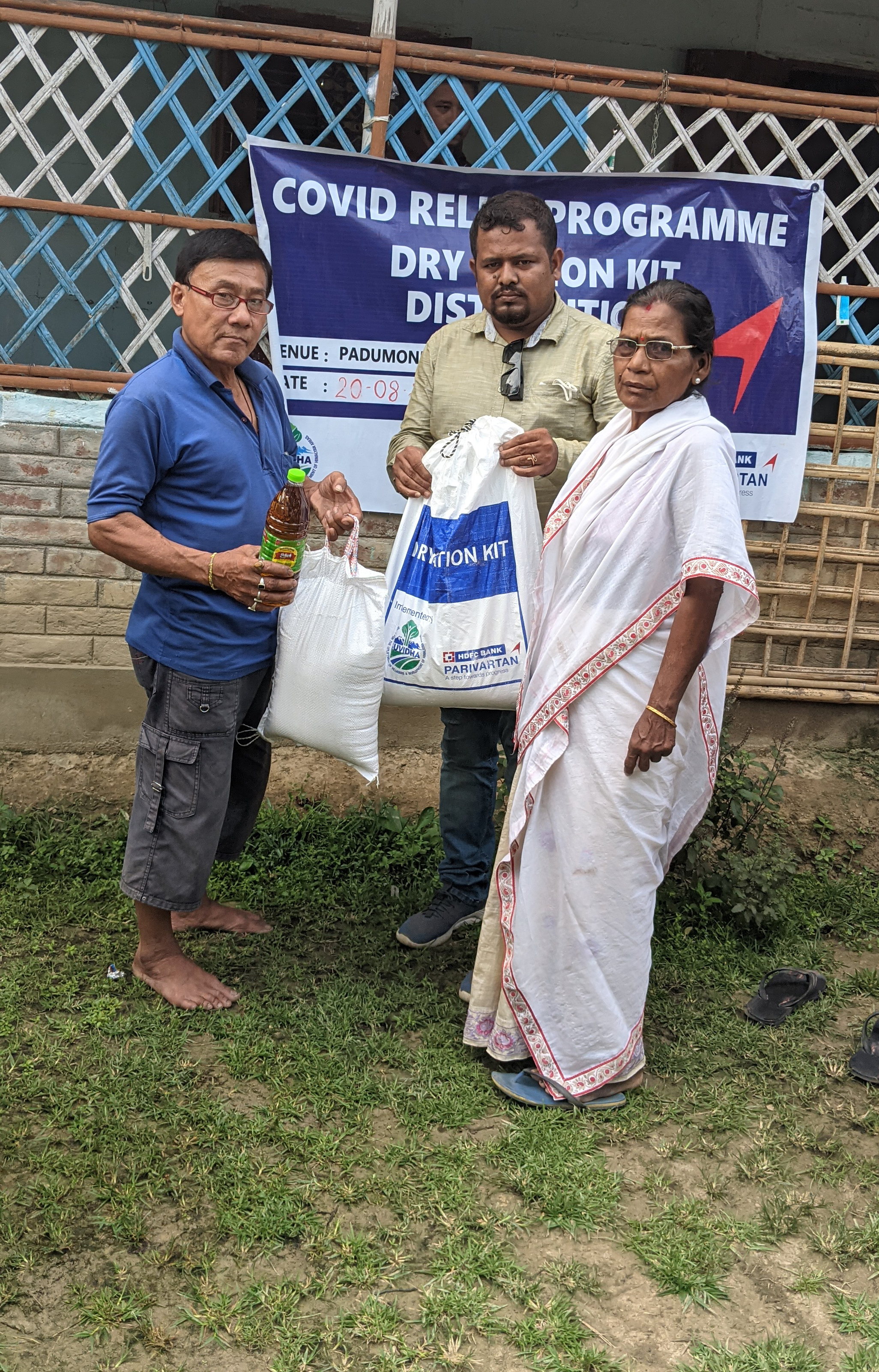
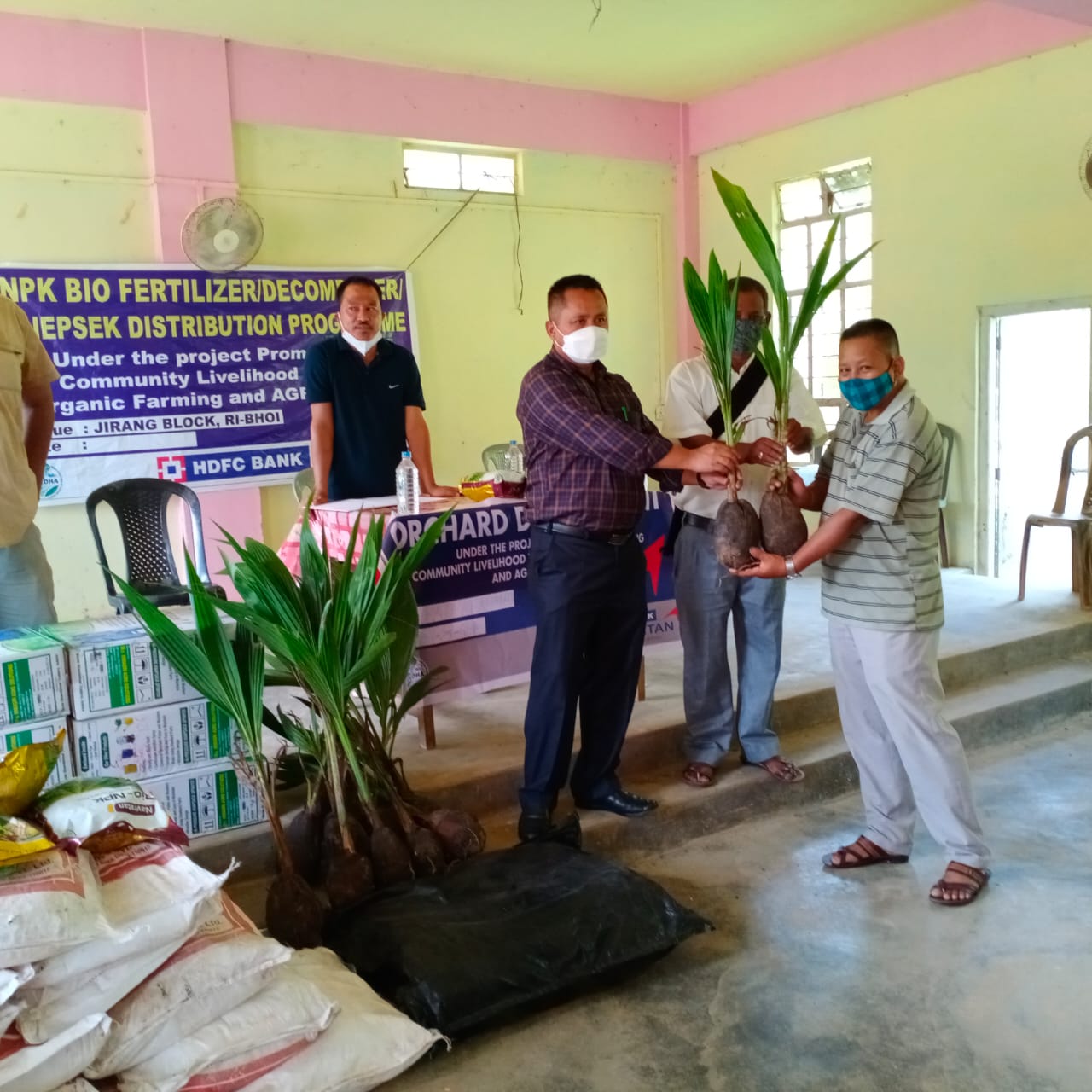
About Donor

HDFC BANK PARIVARTAN - A STEP TOWARDS PROGRESS
HDFC Bank is helping to transform lives of millions of Indians through our social initiatives. These initiatives come under the umbrella of ‘Parivartan’ and they aim to contribute towards the economic and social development of the country by sustainably empowering its communities.
Parivartan has been a catalyst in making a difference in the lives of people through its interventions in the areas of rural development, education, skill development and livelihood enhancement, healthcare & hygiene and financial literacy.
With a lot already done, the bank continues to bring about the change keeping with its philosophy of Sustainability and Innovation.
7,81,000+
Women Empowered
23,500+
Household Toilets Constructed
18,84,000+
FLP Conducted
7,880+
SHGs Formed /
Trained / Revived
About Implementing Partner

Society for the Upliftment of Villagers & Development of Himalayan Areas (SUVIDHA) is a premier non-profit organisation in India with experience spanning over a decade in the field of project development and implementation, with agriculture, water resources and rural development, sustainable natural resources management including rural financial services.
SUVIDHA is also engaged in the promotion of organic and sustainable agriculture in the states of Uttarakhand, Madhya Pradesh, Jammu & Kashmir and Odisha. SUVIDHA has facilitated establishment of nearly 250 organised grower groups and contract production projects in some of the above states.
